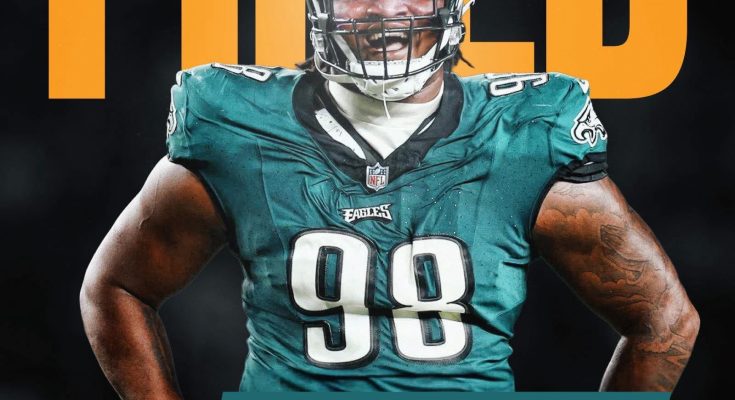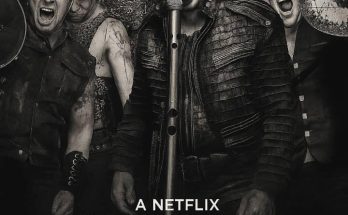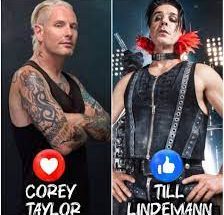Jalen Carter, the Philadelphia Eagles defensive tackle, finds himself in hot water following a shocking early-game incident in the 2025 NFL season opener against the Dallas Cowboys. Minutes into the game — in fact, before a single snap was played — Carter was involved in a heated exchange with Cowboys quarterback Dak Prescott during an injury timeout. That exchange culminated in Carter spitting on Prescott, which led to his immediate ejection for unsportsmanlike conduct
The NFL has since issued its ruling: Carter is being fined $57,222 — his full Week 1 game check — and while technically suspended for one game, the league considers the suspension already served because his ejection happened before the first play. Thus, Carter will be eligible to play in Week 2, when the Eagles are scheduled to face the Kansas City Chiefs.
Carter accepted the discipline without appeal. He also apologized publicly after the game. “It was a mistake that happened on my side. It won’t happen again,” he said. He expressed remorse for letting down teammates, fans, and his family.
It all unfolded very quickly. After the opening kickoff, there was an injury timeout — Eagles fullback Ben VanSumeren had been hurt and needed attention. During that pause, there was some back-and-forth between players. Prescott reportedly spat on the ground, which landed in Carter’s direction, something Prescott said he does habitually during games. That action seemed to irritate Carter. They exchanged words. According to video reviewed later, Carter then spat on Prescott’s jersey. Officials saw it, threw a flag, assessed unsportsmanlike conduct, and shortly thereafter ejected Carter.
Prescott’s version is that he didn’t intend to spit at Carter. He said the ground spit was more of a reflexive or habitual action, not directed. Carter, interpreting it differently, reacted. Prescott was surprised by being spit on. He said he felt insulted and questioned what prompted Carter’s action. “You trying to spit on me?” is the question Carter reportedly posed. Prescott denied trying to spit on Carter.
The ejection had immediate consequences in the game. Because Carter was removed so early — before a single down — the Eagles lost a defensive tackle who is a key piece of their defensive front. Coach Nick Sirianni later emphasized the need for discipline, saying that issue would be addressed internally
The NFL’s ruling is notable because while Carter was technically given a one-game suspension, the league has classified his Week 1 ejection as satisfying the suspension’s time. Since he was disqualified before he even played a snap, the punishment is considered already served. Therefore the only formal penalty is the forfeiture of his Week 1 salary ($57,222) and the fine.
The league also made it clear that Carter would not appeal the decision. The NFL Players Association was involved and waived the right to contest the disciplinecedent. Spitting is considered a “non-football act” that violates sportsmanship rules. Historically, spitting has led to fines and ejections; in some cases, suspensions, but often not, depending on the timing, circumstances, provocation, video evidence, and player conduct after the fact.
From Carter: He admitted regret. The lyrical phrasing aside, the message is clear: he recognizes the misstep, says it was on him, and promises it won’t happen again. He expressed that he feels bad for his teammates, fans, and family — usual themes when someone in his position wants to acknowledge responsibility
From Prescott: He was more measured. He said he did not see Carter’s reaction coming, was surprised, and emphasized that he didn’t attempt to spit on Carter. Prescott took a stance that many observers expect from a veteran: calling it unfortunate, but not wanting to escalate further. He made clear that the initial spit (which landed near Carter) was not intended as a provocation, at least by his account.
Media & Public Reaction: There’s been strong criticism of Carter’s behavior. Many media outlets are framing this as a lapse in judgment, a serious breach of sportsmanship, especially given how early in the game the incident occurred. Some commentators are saying that Carter’s reputation suffers more than any immediate disciplinary impact, particularly because this wasn’t his first brush with concerns over discipline. His youth and potential amplify those concerns: many expect elite players to hold themselves to higher standards in moments of provocation
Former Eagles center Jason Kelce, among others, has criticized Carter’s behavior as “dumb” and called for better—both from him and from players in similar positions—urging that this kind of incident could jeopardize one’s legacy.
From the Eagles organization: Head Coach Nick Sirianni’s response has been that internal discipline will be handled, but he has not disclosed exactly what that entails. The message seems to be: this won’t happen again, and there will be consequences beyond the fine, likely within team protocols
This incident comes at a moment when the NFL has been emphasizing sportsmanship, player conduct, and the optics of behavior both on and off the field. With widespread media coverage, social media reactions, and fan interest, acts of unsportsmanlike conduct at such an early point in big games get magnified. The fact that Carter was ejected before the first play underscores how the league treats such conduct very seriously—even when the transgression might seem minor to some. The NFL clearly views spitting as more than a harmless provocation; it rises to the level of a non‑football act and disqualifiable foul.
There is also precedent: previous incidents in the NFL involving players spitting have resulted in fines, occasionally suspensions, depending on the severity and how direct the act was. But rarely, if ever, has a case involved such an early ejection coupled with a fine equal to a full game’s pay, and then the league considering the suspension already served because the ejection came before any action on the field. This case may become one of the more cited ones when considering future disciplinary policy
For Carter personally, this could be a turning point. He’s young (24), very talented, coming off a season strong enough to earn him Pro Bowl recognition, but not without prior disciplinary concerns. Observers may see this as another mark against him in terms of maturity and reliability under pressure. If he handles things well going forward—on the field behavior, off-field maturity—he can mitigate damage. If more incidents happen, it could compound
For the Eagles, there’s risk and reward. Losing him first snaps of a game can weaken their defensive front temporarily. Fans, media, and league officials will be watching how disciplined the team is, especially in big moments. If Carter does well in Week 2, this incident may fade in memory. But if there are more missteps, or if Carter seems incorrigible in his reactions, it could be a recurring distraction.
For the broader NFL, this incident reinforces that the league considers non‑playing conduct—especially one that is explicitly disrespectful and unsportsmanlike—as something that must be punished promptly. It could influence how referees judge similar incidents, how quickly ejections are issued, and how fines are calculated. Particularly when there is provocation, there is a line that players are expected to not cross, even when emotions are high. Spitting is widely seen as that kind of line.
On the one hand, many would argue that forfeiting a full game’s salary plus a massive fine is a strong deterrent. It sends a message: you can’t engage in behavior like this without severe consequences. The ejection, fine, and paid suspension (effectively) uphold the NFL’s integrity and the principle that players should respect opponents. In that sense, Carter’s accountability is clear.
On the other hand, some might argue that Carter acted provocatively in part — Prescott’s initial spit, though not directed with overt malice, likely contributed to the escalation. Others could argue that Carter’s remorse, lack of prior extreme transgressions of this type, and agreeing not to appeal should be factors that lessen the blow. Indeed, for some fans, the line between unsportsmanlike conduct that raises a fine vs. required suspension may seem murky.
Also, since the suspension is considered already served, some may feel Carter got off lightly compared to what could have been imposed. If the NFL had decided to suspend him for this upcoming game, that would have been a more visible consequence. The fact that this was avoided may lead some to think that timing (how early in the game, no snaps) played a large role in mitigating consequences.
Carter is eligible to play in Week 2 against the Kansas City Chiefs. That game will likely be scrutinized more closely for his behavior. If he plays well and stays out of trouble, that will help rebuild some goodwill. If something similar or any other incident happens, the criticism and pressure will increase.
He’ll almost certainly be under more internal discipline by the Eagles — though no public statement has been made detailing exactly what that is. Often this means coaches will hold meetings, possibly reduce practice reps, maybe have mentorship conversations, or impose team sanctions as a way to ensure behavior is corrected.
There is also the reputational angle: media scrutiny is high, fans remember these kinds of moments, and they can become part of a player’s public persona. Reversal or redemption is possible, but it requires consistent discipline, apologies if warranted, and performances that overshadow the negative moment.
This situation ties into several broader trends in the NFL and pro sports in general:
Increasing emphasis by the league on sportsmanship and conduct. The NFL regularly emphasizes that certain actions — even if they occur off‑the ball or before play — are still part of what the league holds players accountable for. Spitting falls under that category: non‑football acts that are clearly outside the bounds of normal competitive aggression.
The role of instant review, video, and public exposure. In this case, video evidence helped clarify what led up to the spitting, which aided the conversation about provocation, timing, and fairness. Public reaction (social media, sports media) amplifies how these events are judged after the fact. Players know that their actions, even before the first snap, can be scrutinized.
The challenge for young players with talent but lapses in discipline. Carter is a perfect example: highly gifted, high expectations, but actions like this create a cloud. Many star players have had to navigate similar moments — controlling emotions, learning where the line is, managing provocation.
- The balancing act for the NFL: enforcing discipline without seeming overly harsh, keeping the game’s integrity, ensuring that punishment is consistent, but also taking into account context (provocation, timing, intent, past behavior). The league has to maintain credibility: “non-football acts” must be punished, but the punishments must feel just to players and fans. If not, the league risks backlash for being hypocritical or inconsistent.
In summary: Jalen Carter spat on Dak Prescott in the season opener, was ejected before any real play, has been fined $57,222 (his Week 1 salary), and while given a one‑game suspension on paper, the league considers that already served because of how early the ejection was. Carter apologized, Prescott reacted with surprise but not anger, the media and fans are critical, and the eyes will be on Carter in Week 2 to see if he’s learned from this.
This is one of those moments that could either be a footnote in Carter’s career — something he moves past with maturity — or it could become part of a pattern that hurts his reputation. What he does next will matter a lot more than what just happened.
If you want, I can pull together perspectives from analysts on whether this was enough punishment, or how similar cases were handled in the past — might help see whether this is truly fair. Do you want me to include that?



